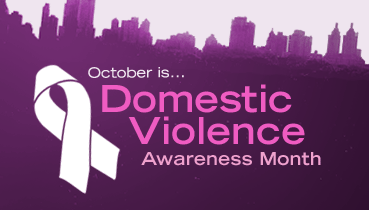Domestic Violence and Traumatic Brain Injuries
Since October is Domestic Violence Awareness Month, I thought this would be a perfect time to share with you a societal problem that has been largely ignored. Not only do war veterans, football players, and accident survivors sustain traumatic brain injuries, but women who are victims of domestic violence sustain TBIs too. Here’s the tragic truth: Close to five million women in the United States experience domestic-related assaults every year, and the injuries they suffer are mostly to the head, neck, and face. Men experience approximately three million domestic-related assaults each year. The CDC estimates that nearly one hundred sixty thousand TBI-related deaths, hospitalizations, and emergency room visits in the U.S. every year are a result of physical assaults. But the actual numbers are unknown. Why?
Many victims don’t report the abuse to family, friends, or the police because they worry others will not believe them. And victims are often dependent on their abusers, financial and physically. Also, a TBI can make it difficult to communicate clearly, preventing victims from reporting the abuse. The perpetrator may convince others that the victim shouldn’t be taken seriously because of her TBI-related cognitive problems, and victims may be unwilling to admit that they have a TBI out of fear of the fallout: losing custody of children for instance.
An obvious trauma does not have to occur for a TBI to exist. Women who suffer a blow to the head in a domestic violence incident may not lose consciousness, and, therefore, they may not seek medical attention. Symptoms may not be easily recognized and women are often misdiagnosed with a mental health illness. In an article from the Huffington Post, a woman who was interviewed about her experience subjected to a two-and-a-half year abusive relationship says, “When you are in a relationship with that much trauma and violence, you don’t know what’s physical or what’s emotional or mental.”
In a past study conducted by the American Psychological Association, trained staff surveyed one hundred sixty nine women who visited three different emergency rooms with injuries sustained over a period of seven to nine months. Of the forty-six women who answered all the survey questions, seventy-one assaults were reported. Thirty-five percent of the women were identified as possibly having sustained a mild traumatic brain injury.
Women with traumatic brain injuries caused by domestic violence have below average recoveries and are more likely to develop post-concussive syndrome. Researchers don’t know the reasons for this, but suspect it’s due to the nature of the injury to the head, that female hormones may affect recovery, or that female victims of domestic violence have sustained multiple injuries.
Overall, researchers found that sixty-seven percent of the women who participated in the survey exhibited symptoms of a TBI.
What is being done about this dire reality? Researchers have advocated for further exploration into the nature and consequences of domestic violence and TBIs. They are also proponents of early screening for TBIs, so women have access to treatment, thus preventing further injuries.
The New York State Office for the Prevention of Domestic Violence has made available to those likely to encounter victims of domestic violence a list of statistics, TBI symptoms, and questions to ask when assessing for abuse. Though the document is geared toward professionals, I encourage all of us to read it, to be better aware of the connection between domestic violence and TBIs.


Recent Comments